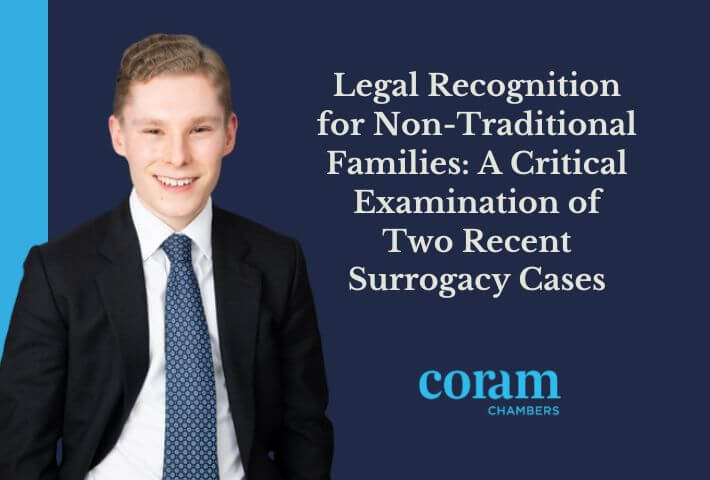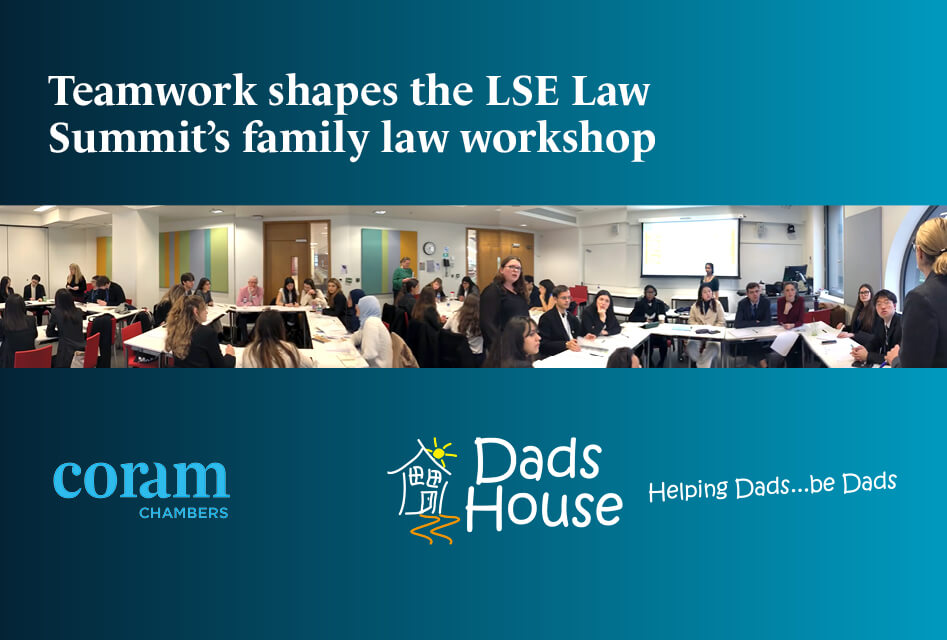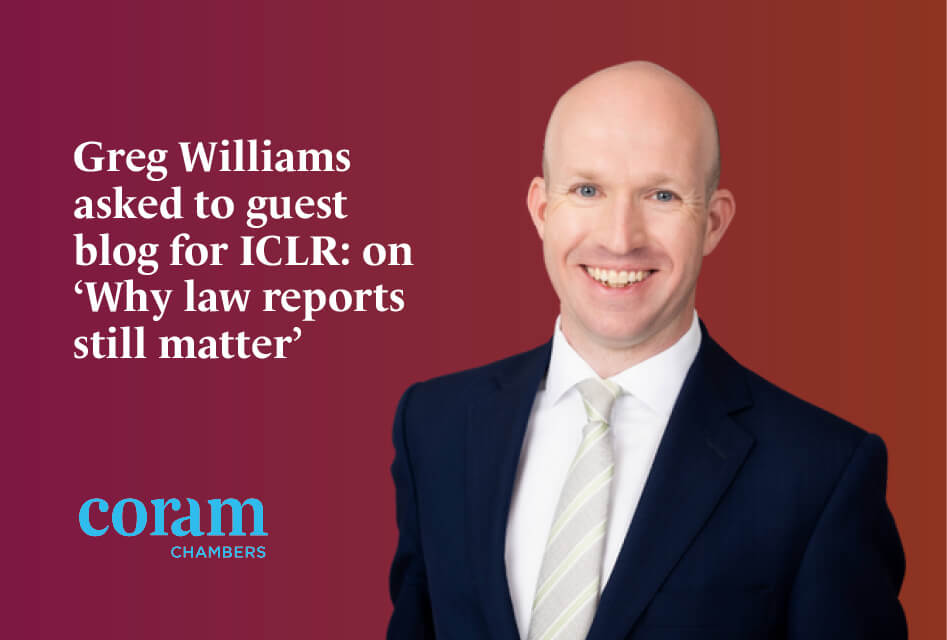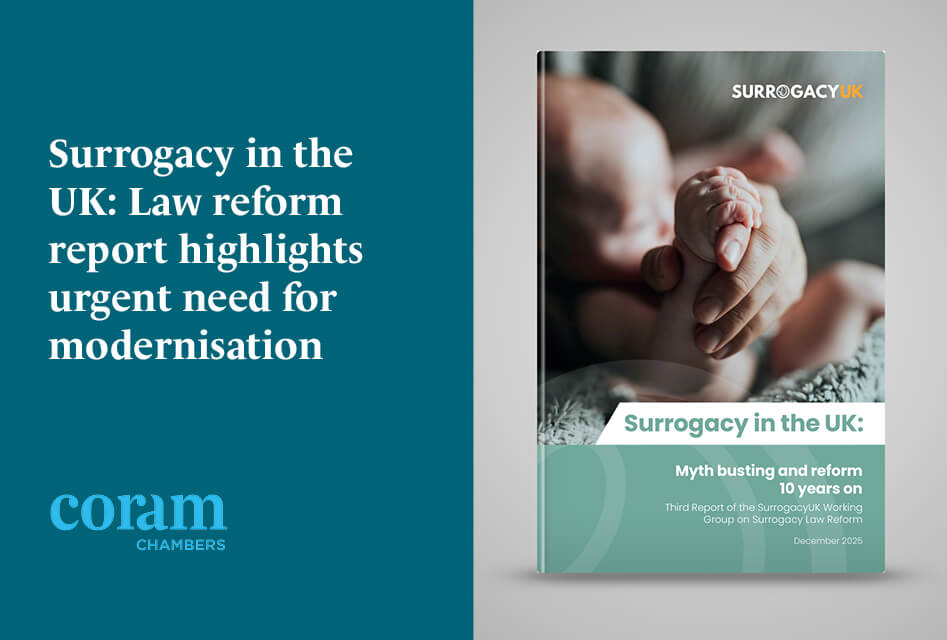
Rob Marsh, Door Tenant at Coram Chambers, has published a case note in the Modern Law Review.
The piece delves into the complexities of legal parenthood in surrogacy arrangements, focusing on two recent cases in which the courts refused to recognise the intended parents as the child’s legal parents: Re C (Surrogacy: Consent) [2023] EWCA Civ 16 and Re Z (Surrogacy: Step-Parent Adoption) [2024] EWFC 20.
Re C and Re Z both concerned the same child. Re C involved an application by the intended parents for a parental order. This ultimately being unsuccessful, in Re Z the intended parents instead applied for an adoption order. Again, their application was refused.
Re C focused on the statutory framework for surrogacy set out in section 54 of the Human Fertilisation and Embryology Act 2008. According to section 54(6), where a surrogate refuses to give her consent to a parental order being made, the courts are in effect legally barred from making one – irrespective of the impact on the welfare of the child.
In Re C, the intended parents argued that this absolute requirement for a surrogate’s consent was incompatible with theirs and the child’s Article 8 rights under the European Convention on Human Rights because it prevented their family receiving formal legal recognition – even though the intended parents were raising the child, and the surrogate did not object to this.
In his note, Rob argues that the Court of Appeal’s ECHR proportionality analysis in Re C was troublingly superficial. There was little to no consideration of the real life impact on the child of discharging the parental order. And there was reliance on the ‘margin of appreciation’ which should be reserved for the supranational ECtHR.
Their application for a parental order having failed, in Re Z the intended parents applied for a step-parent adoption order. They argued that the child’s welfare required an adoption order to be made, this being the only remaining legal route to them both being recognised as the child’s legal parents.
In reviewing Re Z, Rob observes that while the court endeavoured to be comprehensive in assessing the child’s welfare, it erroneously clung to outdated assumptions about surrogate-born children which do not align with contemporary social science insights.
The publication serves as a call to action for legal practitioners and policymakers alike, urging a reassessment of the existing laws on surrogacy, and urging practitioners and judges to take children’s rights seriously – in surrogacy cases, not only the child’s right to know about their biological heritage, but also their right to be raised in a legally secure family.
For those interested in delving deeper into this critical analysis, the full article can be found here.


